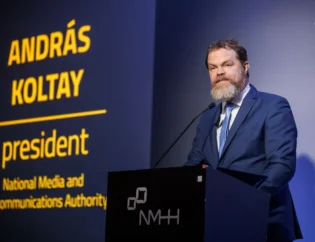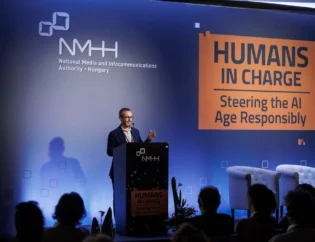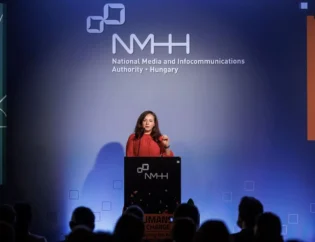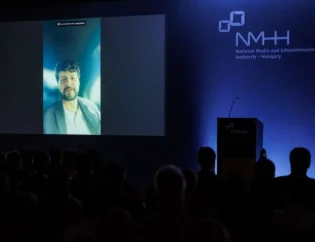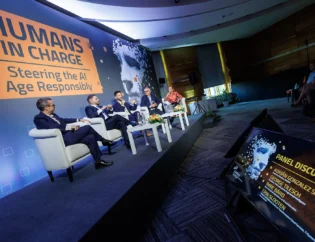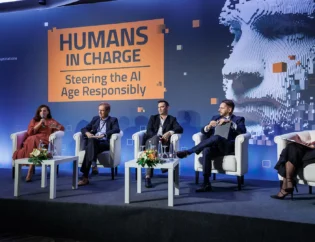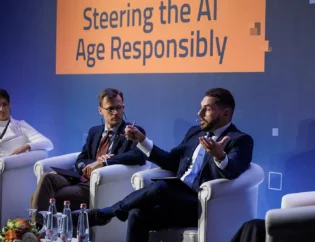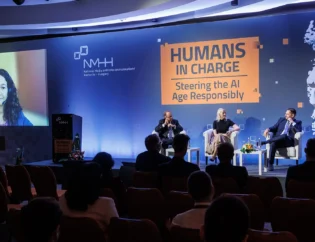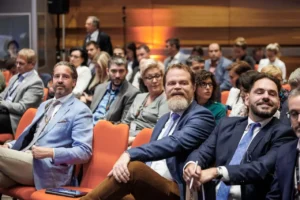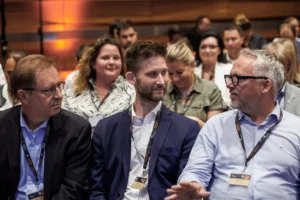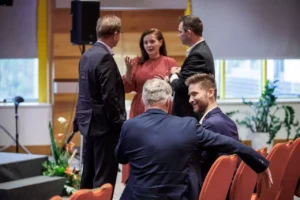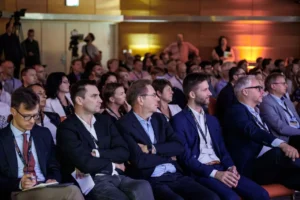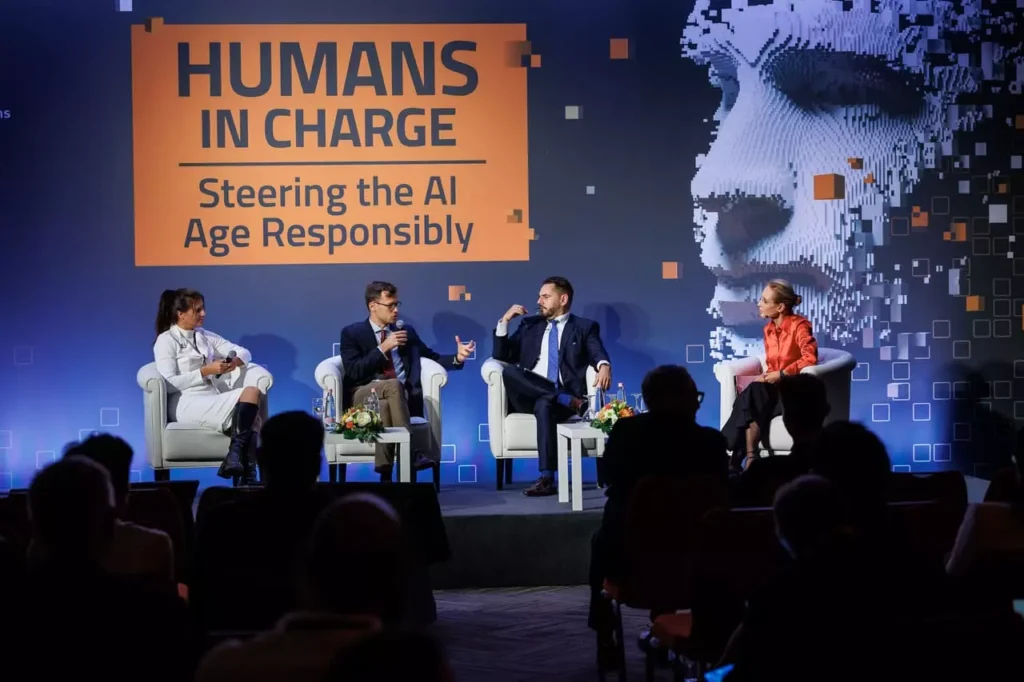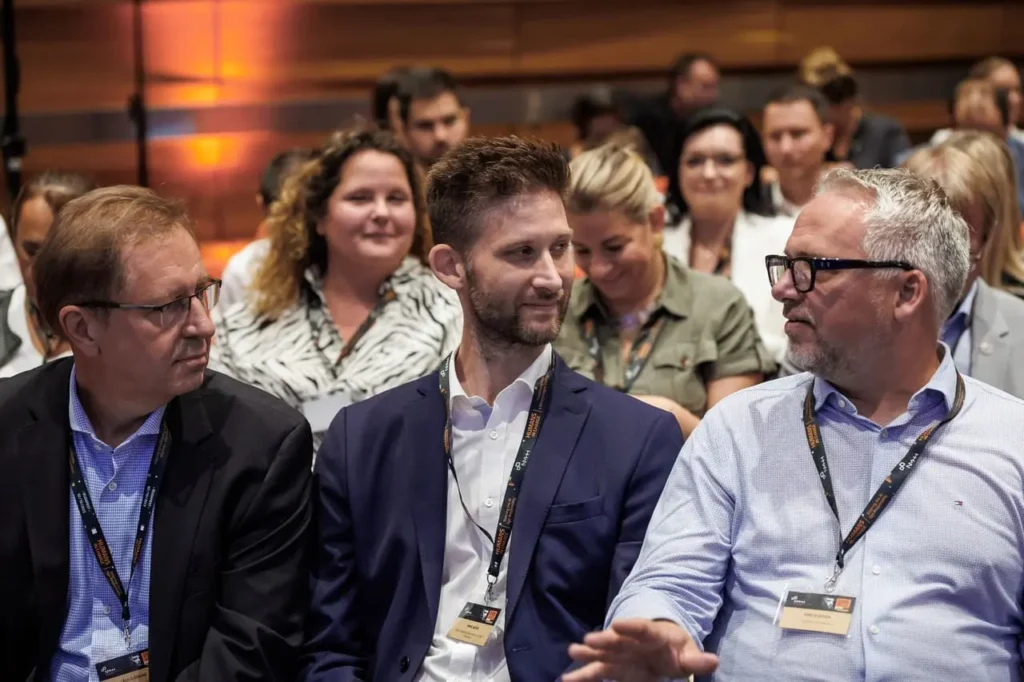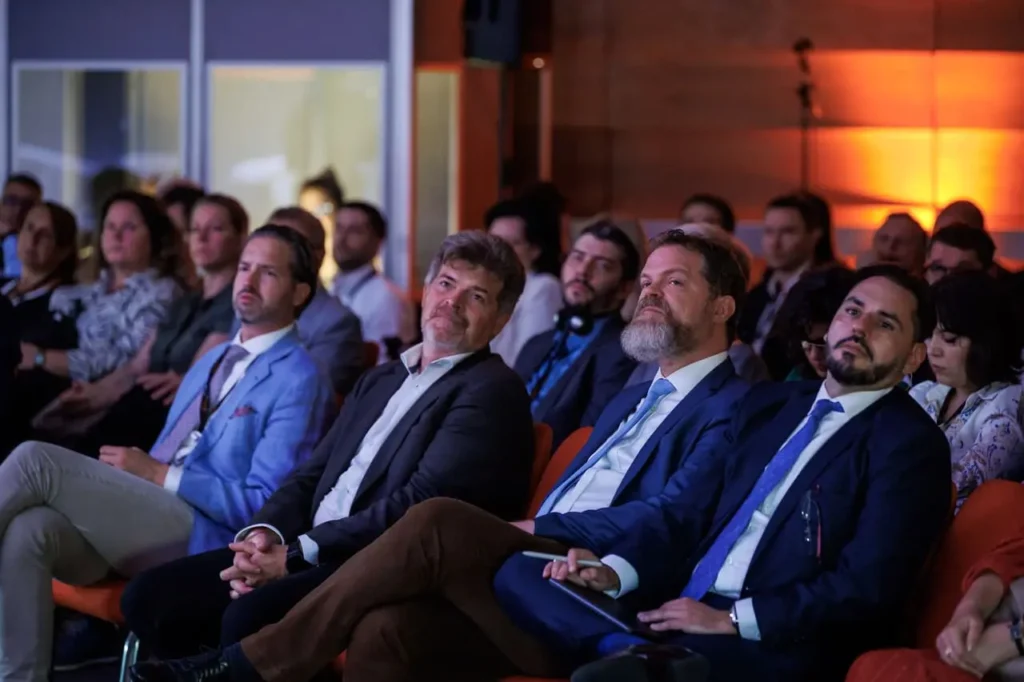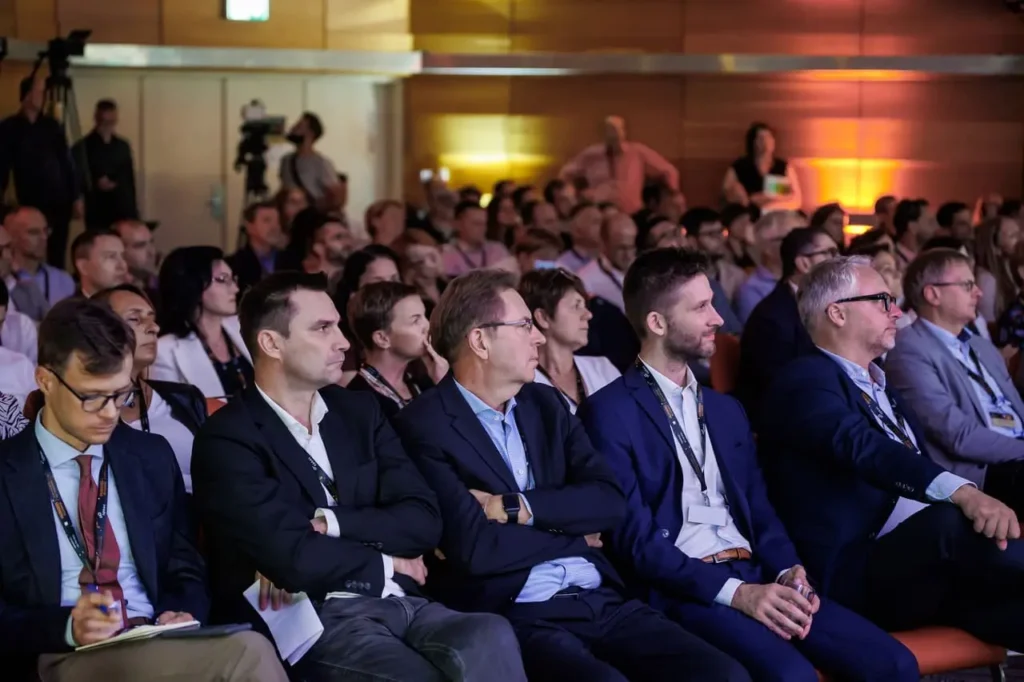Humans in Charge International AI Symposium
For 2024 details, visit our new website on humansincharge.ai
Summary of 2023
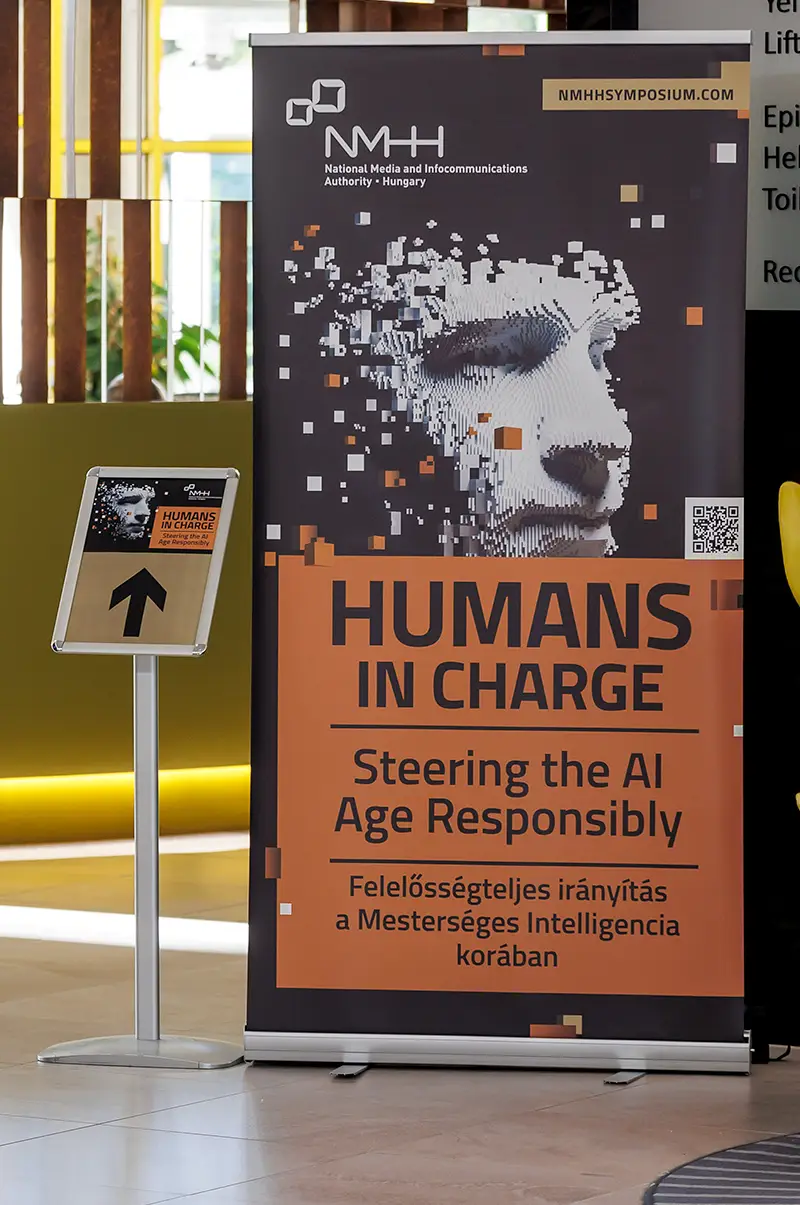
Conference name: Humans in Charge – Steering the AI Age Responsibly
Time and Date: 2 October 2023 | Budapest
- A regulatory wave
- Responsible AI
- Multi-stakeholders
- AI Governance
The conference was prompted by the forthcoming European AI regulation and the recent rapid spread of AI which require all relevant responsible stakeholders to tune up thinking and awareness of the new technology in order to maximise societal benefits.
The NMHH, which has made the responsible use of artificial intelligence a top priority, invited 13 international AI experts to speak at the event for them to
- present the European regulation’s risk-based approach to AI,
- describe the best practices they know of, either from a government or a private sector perspective, and
- draw attention to the challenges of AI as well as related areas, such as the protection of personal data and children, or the ethical use of digital services.
The conference was organised around four major themes, each exploring the potential impact of artificial intelligence from a different point of view.
Speeches
The President of the National Media and Infocommunications Authority, emphasized the need for collaboration among researchers, developers, and decision-makers for ethical AI development and usage. Koltay called for further exploration of the AI's legal implications, data protection, and vital ethical standards.
As Data & AI Lead for Public Sector & Health at Microsoft Spain, Sanchez highlighted the need for collaboration between government and private sector in managing AI. He underscored the importance of a cautious yet optimistic approach referencing Spain's AI strategy and the potential for other EU countries to adopt the AI Sandbox model.
Maria Luciana Axente, a renowned AI ethics expert and advocate for children's rights, focused on child protection in the digital age. She explored the opportunities AI offers in education and health but warned of its darker side, including reducing human interaction crucial for childhood development.
Brando, co-rapporteur of the EU’s Artificial Intelligence (AI) Act, said that the title of the NMHH conference encapsulated perfectly what they wanted to achieve with the new Community legislation: a set of human-centred rules that allow strong human oversight, minimise risks and promote the reaping of the benefits.
Panel discussions
The panel discussion on 'Responsible AI in Digital Platforms, Telco & Media' focused on AI's role in these sectors and exploring strategies, challenges, and regulatory compliance. The panel comprised experts from Microsoft Spain, PHI Institute for Augmented Intelligence, OpenAI and T-Systems International.
The panelsists – who are internationally renowned AI experts – discussed AI's power as a constructive force but also potential threats and risks. The main focus was on creating awareness regarding AI safety and security, protecting vulnerable populations, particularly the youth, and the role of institutions and defense against AI misuse.
The world is nearing consensus on ethical AI, presaged by the anticipated EU AI Act. Questions of creating norms, operationalizing them, and establishing governance structures are central. Leaders are expected to understand AI policy, ethics, and communicate its implications effectively.
The fourth panel discusses AI-infused government services as a key area for AI introduction in society. Questions revolve around EU political readiness for AI, creating trustworthy AI environments, the role of AI sandboxes, and partnerships between public authorities and AI leaders. The participating panel experts hail from a diverse array of AI-related fields.
Photo gallery
Speakers


Axente



Erdelyi






Misuraca



Kriisa



Tilesch



Drajkó



Porkoláb



Halmos



Slooten



Bárd



Juhász



Benifei



